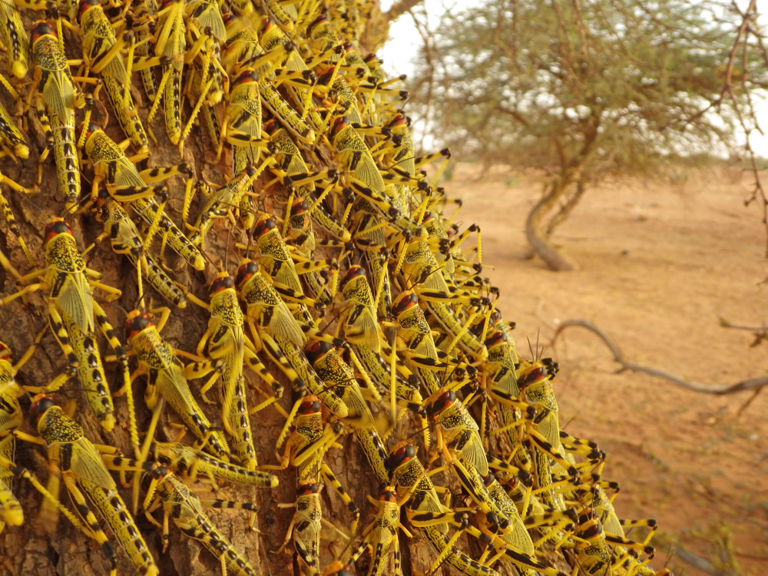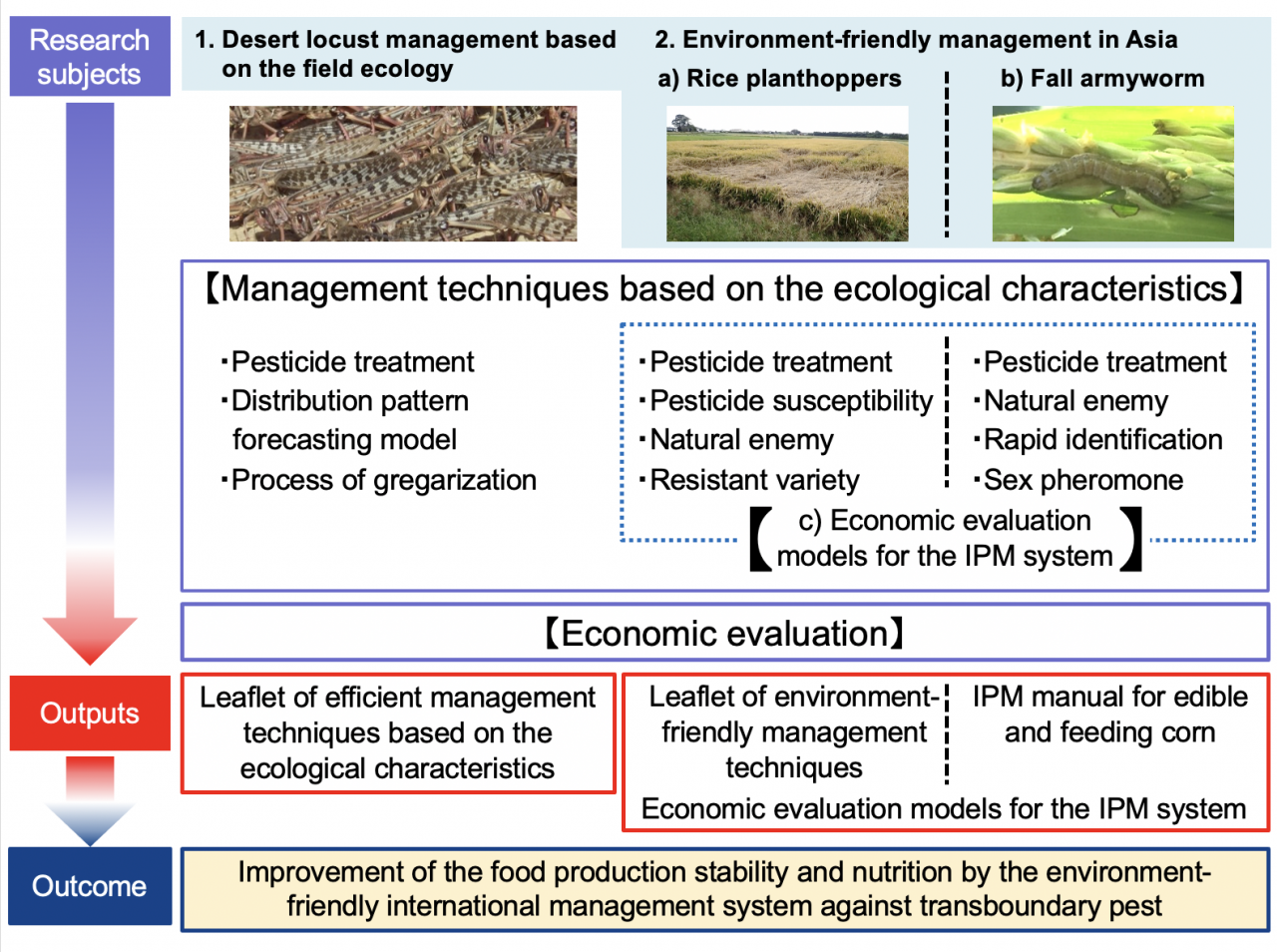Pick Up
361. Development of Environment-friendly Management System Against Transboundary Plant Pests Based on Ecological Characteristics

The damage caused by transboundary plant pests is increasing due to the expansion of wintering areas caused by global warming and the acceleration of migration and dispersal caused by social globalization. The G20MACS meeting, chaired by Japan, recognized that transboundary plant pests pose a serious threat to food security and the environment. In response, the Ministry of Agriculture, Forestry and Fisheries (MAFF) of Japan organized the International Workshop on Facilitating International Research Collaboration on Transboundary Plant Pests in November 2019. Then the JIRCAS International Symposium 2019 under the theme "International research collaboration to tackle transboundary plant pests: Contributions to the Sustainable Development Goals" was also held to explore effective international research cooperation.
In order to prevent the spread and proliferation of transboundary pests, it is necessary for developed countries to take the lead in developing management technologies that have a low environmental impact, and to build a cooperative system that includes developing regions. Therefore, in the “Transboundary pest management” project, we will develop efficient, ecologically-based, environment-friendly control technologies against transboundary pests, which have become a particular problem in recent years. In addition, we will present economic evaluation models that will serve as a guideline for the development of efficient integrated pest management technologies when new transboundary pest problems become apparent.
This project will focus on desert locust, rice planthoppers and fall armyworm. Desert locusts are a major problem in Africa and southwest Asia. Since the ecology of this species in the field is still unknown, inefficient control measures with high environmental impact have to be taken after the problem becomes apparent. Since this species damages various crops, crop production and nutrient supply are severely affected in areas where outbreaks occur. For the desert locust, we have previously introduced a discussion on the relationship between climate change and outbreaks in East Africa, as well as answers to questions posed to JIRCAS. The brown planthopper (BPH) and the white-backed planthopper (WBPH) are important pests of rice that are widely distributed in Asia. Since the control system in Vietnam, which is the source of rice pests in Japan, has not yet been established, the pests have become an impediment to rice production both there and in the destination country, and have also caused problems such as the development of insecticide resistance. The fall armyworm has invaded Africa and Asia in recent years, causing serious damage mainly to corn. Adults are known to have the ability to travel long distances, exceeding 100 km in a single night. In Asia, it was discovered in India in 2018 and invaded Thailand and other Southeast Asian countries during the same year. Then, it was also discovered in Japan in the following year. As for this insect pest, efficient control method based on ecology and cultivation system has not yet been established, so it has become a major cause of revenue loss in many areas. In addition, there are concerns about the development of insecticide resistance due to excessive reliance on insecticides for control.
The flow of the research is shown in the figure below. For the control of fall armyworm, we have contributed to the development of the ASEAN (Association of Southeast Asian Nations) Action Plan on Fall Armyworm Control through Grow Asia, one of the platforms of the World Economic Forum. In the future, we will continue to cooperate with international organizations and disseminate information to countries and regions other than the research target countries, aiming to maximize the ripple effect.
References
JIRCAS Participates in the International Workshop on Facilitating International Research Collaboration on Transboundary Plant Pests https://www.jircas.go.jp/en/reports/2019/r20191129
JIRCAS International Symposium 2019 Focuses on Tackling Transboundary Plant Pests and Contributing to SDGs https://www.jircas.go.jp/en/reports/2019/r20191128_0
B3 生態に基づく越境性害虫の環境調和型防除体系の構築【越境性害虫】
https://www.jircas.go.jp/ja/program/prob/b3
Pick Up 2. Towards the development of preventive control technologies for desert locusthttps://www.jircas.go.jp/en/program/program_d/blog/20200424
Pick Up 96. Nature Climate Change: Climate Change and Locust Outbreak in East Africahttps://www.jircas.go.jp/en/program/program_d/blog/20200819
About Desert Locust https://www.jircas.go.jp/en/program/program_b/desert-locust
Pick Up 156. Preventing planthopper outbreaks which cause yield loss in rice production https://www.jircas.go.jp/en/program/program_d/blog/20201020
Pick Up 30. Transboundary Pests and the International Year of Plant Health ― Fall armyworm https://www.jircas.go.jp/en/program/program_d/blog/20200528
ASEAN Action Plan on Fall Armyworm Control
http://exchange.growasia.org/asean-action-plan-fall-armyworm-control
Contributor: KOBORI Youichi (Project Leader, Transboundary Pest Management Project)

